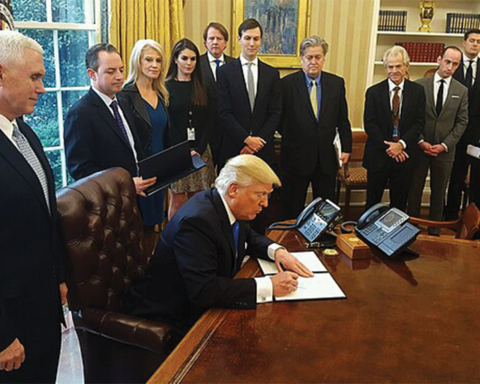America voted, and the results are in. For anyone living in a cave for the past week out of fear of nuclear apocalypse, America elected Donald Trump as the next President of the United States, and so far the world is still in one piece.
Although Trump won, many Americans still question whether Trump speaks for the common American. Some claim that hate and fear won this week while Muslims, Hispanics, blacks, the disabled and LGBTQ+ people lost.
Whether it was comments about the Khan family, walls or Muslim bans, controversy dominated not only this election cycle, but Trump’s campaign specifically.
But how much more radical is Trump compared to other politicians? A few issues in particular may paint a slightly nuanced picture of the president-elect than many have created on social media.
Trump’s stance on LGBTQ+ issues is actually far less radical than many Republicans, including his own running mate, Mike Pence.
At a rally in Colorado last month, Trump held up a rainbow flag with the words “LGBT for Trump” in front of hundreds of followers.
He said that the Supreme Court has ultimately decided the issue of gay marriage and that there is no need to repeal that decision.
He has also expressed approval for transgender bathrooms in an NBC town hall earlier this year. Both of these views separate him from the majority of other Republicans.
According to a recent Pew Research poll, only 33 percent of conservative Republicans favor legalizing marijuana.
Compared to most conservative Republicans, Trump holds a fairly moderate view on the legalization of marijuana. He believes that decisions on marijuana legalization should be left to the states, an extension of President Obama’s own policy.
It’s also important to note that while Trump has been characterized as staunchly against Hispanics and blacks, he received more black and Hispanics votes than Mitt Romney did in 2012.
All of this is not to say that Trump will be a superb commander-in-chief. His campaign is riddled with controversial and radical statements that deserve examination and dialogue. However, throwing around pejoratives like “racist,” “homophobe” and “bigot,” instead of discussing the substance of Trump’s arguments, is the wrong way to engage in political discourse.
Tyler Grudi is a staff writer for the Bona Venture.
His email is
gruditj15@bonaventure.edu









